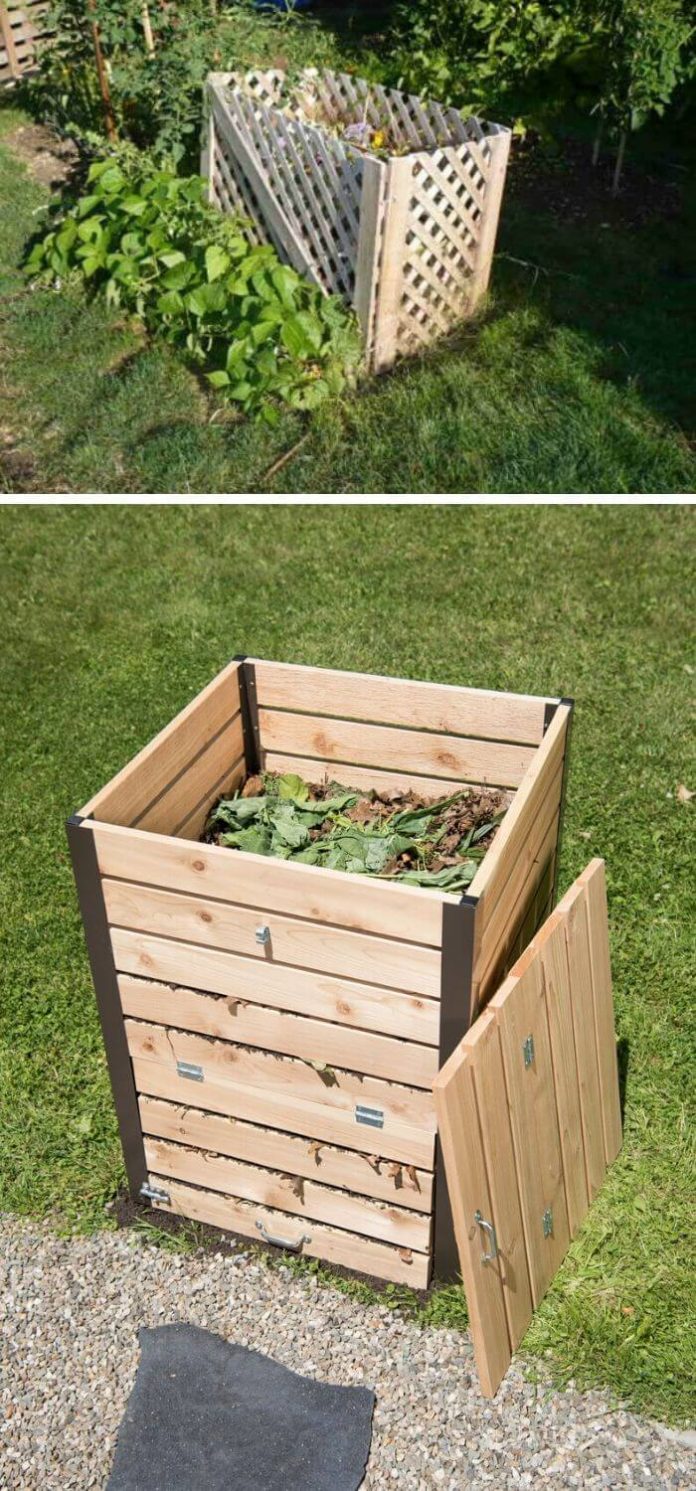DIY Compost Bins for Small Backyards

DIY Compost Bins for Small Backyards: Turning Organic Waste into Gold
Composting is like alchemy for urban gardeners. It transforms organic waste into nutrient-rich soil, which is pure gold for your plants. But what if you're short on space? Don't worry, we've got you covered with these DIY compost bins for small backyards.
Why Bother with Homemade Compost?
Before we dive into the DIY part, let's talk about why you should bother making your own compost. Firstly, it's a great way to reduce your carbon footprint. According to the EPA, composting can significantly reduce the amount of waste sent to landfills. Plus, you'll be creating your own nutrient-rich fertilizer for free. Win-win!
Types of DIY Compost Bins for Small Backyards
Wire Mesh Bin
This is the simplest and most cost-effective DIY compost bin. All you need is some wire mesh, zip ties, and a pair of pliers. Shape the mesh into a cylinder, secure it with zip ties, and voila! You've got a compost bin. The open design allows for great aeration, but it might not be the prettiest option.
Plastic Storage Bin Composter
Got an old plastic storage bin lying around? Drill some holes in it for aeration, and you've got a DIY compost bin. This is a great option if you're looking for something compact and easy to move around. Plus, it keeps critters out.
Pallet Compost Bin
If you've got a bit more space and want something sturdier, consider making a compost bin out of pallets. You can find pallets for free or cheap, and they're easy to assemble into a bin. This option offers plenty of room for your organic waste and can double as a garden feature.
Tumbler Compost Bin
Feeling handy? A tumbler compost bin is a great project. It's essentially a rotating drum that makes it easy to turn your compost. This speeds up the composting process and keeps pests out. It's a bit more complex to build, but the results are worth it.
Composting Tips for Small Spaces
What to Compost
You can compost a wide range of organic waste, including fruit and vegetable scraps, coffee grounds, eggshells, and yard trimmings. Avoid meat, dairy, and diseased plants, as they can attract pests and spread diseases.
Balancing Greens and Browns
For optimal composting, you need a balance of 'greens' (nitrogen-rich materials like food scraps) and 'browns' (carbon-rich materials like dry leaves). Aim for a ratio of about 1:2 greens to browns.
Keeping it Aerated
Compost needs oxygen to break down properly. That's why many DIY compost bins have holes or open designs. If you're using a closed bin, make sure to turn the compost regularly to keep it aerated.
Maintaining Moisture
Your compost pile should be about as moist as a wrung-out sponge. If it's too dry, add some water. If it's too wet, add more browns.
Harvesting Your Homemade Compost
Once your compost is ready (it should look like dark, crumbly soil), it's time to harvest. Use it to enrich your garden beds, top-dress your lawn, or make compost tea. Your plants will thank you!
Troubleshooting Common Composting Issues
It's Too Smelly
If your compost bin is stinking up the place, it's likely too wet or has too many greens. Add more browns and turn the pile to introduce oxygen.
It's Not Breaking Down
If your compost isn't breaking down, it might be too dry or not getting enough oxygen. Add some water and turn the pile.
It's Attracting Pests
If critters are becoming a problem, make sure you're not adding any meat or dairy to your compost. Also, consider using a closed bin design.
DIY Compost Bins for Small Backyards: The Gift that Keeps on Giving
Composting is like gardening's version of recycling. It turns something you'd normally throw away into something valuable. With these DIY compost bins for small backyards, you can turn your organic waste into liquid gold for your garden.
FAQs
Q: Can I compost in an apartment?
A: Yes! You can use a small, closed bin for composting indoors. Just make sure to maintain a good balance of greens and browns to keep odors at bay.
Q: How long does it take to make compost?
A: It can take anywhere from a few weeks to a few months, depending on factors like temperature, moisture, and how often you turn the pile.
Q: Can I compost weeds?
A: It's generally not a good idea to compost weeds, as they can spread seeds or regrow in your compost pile.
Q: What's the best time of year to start composting?
A: You can start composting at any time of year, but the process is fastest in warmer weather.
Q: Can I add worms to my compost bin?
A: Yes, worms can speed up the composting process. This is known as vermicomposting. Just make sure to maintain optimal conditions for the worms.
0 Response to " DIY Compost Bins for Small Backyards"
Post a Comment